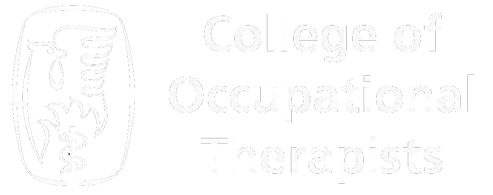
Dyspraxia or Developmental Co-ordination Disorder (DCD)
Developmental Co-ordination Disorder (DCD) or Dyspraxia is a term used to describe a delay in development of, or difficulty co-ordinating motor skills in children that directly affects the child's ability to perform common everyday activities. Everyday activities refers to the tasks that children complete on a daily basis, and include activities such as writing, playing, drawing, moving, balancing, running, getting dressed and tying shoelaces or completing other fine motor tasks.
An occupational therapist can develop these skills, and improve the motor co-ordination of a child with DCD or Dyspraxia. The occupational therapist would use occupations to enhance and develop the underlying skills that gross motor skills compose of.
Does your child have any of the following difficulties?
Often described as being clumsy or awkward, children with DCD or Dyspraxia have common difficulties in everyday tasks. A child with DCD or Dyspraxia has the following symptoms:
- Difficulty going down stairs
- Struggling to throw or catch
- Unable to/ struggling to run
- Difficulty navigating an obstacle course in P.E
- Difficulty traversing through forests or rough ground
- Poor balance
- Tying shoelaces
- Completing fine motor tasks
- Poor sentence formation
- Getting dressed
How can these difficulties impact on function?
DCD can have a dramatic effect on function both at school and home. Children begin to pick up on who is more able to complete activities and who is behind; this could lead to social issues such as bullying and teasing. Some examples of how a child with DCD or Dyspraxia may struggle at home, in school or socially are listed below:
Home:
- Clumsy
- Spilling drinks and difficulty carrying food
- Falling frequently and often bumps into walls
- Doesn't like playing outside, or finds it difficult to catch/throw
- Struggling in P.E
- Difficulty catching or throwing
- Identified to be finding movements hard to complete
- Dislikes being trusted to carry objects from one place to another
- Poor balance
- Teased for their poor ability in lessons
- Difficulty competing at the same level of their peers
- Low confidence in movement activities
What exactly does DCD or Dyspraxia involve?
The exact cause of DCD or Dyspraxia is unknown, it can occur at any stage or development and for many reasons. Children constantly receive input from their senses regarding the outside world as they learn how to interact with it and its objects, a breakdown in communication between the senses on the body and the brain could lead to DCD or Dyspraxia.
Diagnosis
Dyspraxia or DCD is diagnosed through observation and an analysis of your child's motor function and movement ability. This is done through your GP or through a referral to a specialist.
Prevalence:
DCD affects between 5% and 6% of all school-aged children. The ratio of boys to girls varies from 2:1 to 5:1, depending on the age group studied.
Occupational Therapy treatment available for DCD or Dyspraxia
An occupational therapist would be able to provide effective treatment and improve the movement co-ordination difficulties associated with DCD or Dyspraxia. Some of the benefits of Occupational Therapy are:
- Improved balance
- Improved co-ordination
- Improved ability in P.E and other sport based activities
- Improved hand eye co-ordination
- Core stability improvement
Summary
In summary Developmental Co-ordination Disorder (DCD) or Dyspraxia is a term used to describe a delay in development of, or difficulty co-ordinating motor skills in children that directly affects the child's ability to perform common everyday activities. An occupational therapist would be able to provide effective treatment and improve the movement co-ordination difficulties associated with DCD or Dyspraxia.
How to arrange to see a paediatric occupational therapist?
If your child has DCD or Dyspraxia, or you think that they may have some of the symptoms, our occupational therapists can help. Please email office@otforkids.co.uk or call us on 0330 223 0888 for a referral or to simply talk about the concerns you may have for your child.
↑ Back to Top
 Next steps:
Next steps:Please contact one of our experienced occupational therapists today and we will gladly discuss how we can help and what services we can offer you.
- 0330 223 0888
- office@otforkids.co.uk
- 2 Hagley Rd, Salford M5 3EY [map]







 OT for Kids have been a great help in aiding my son Jake with coping with his dyspraxia both at home and in school. They came out to our house and completed the assessment at home.
OT for Kids have been a great help in aiding my son Jake with coping with his dyspraxia both at home and in school. They came out to our house and completed the assessment at home.






